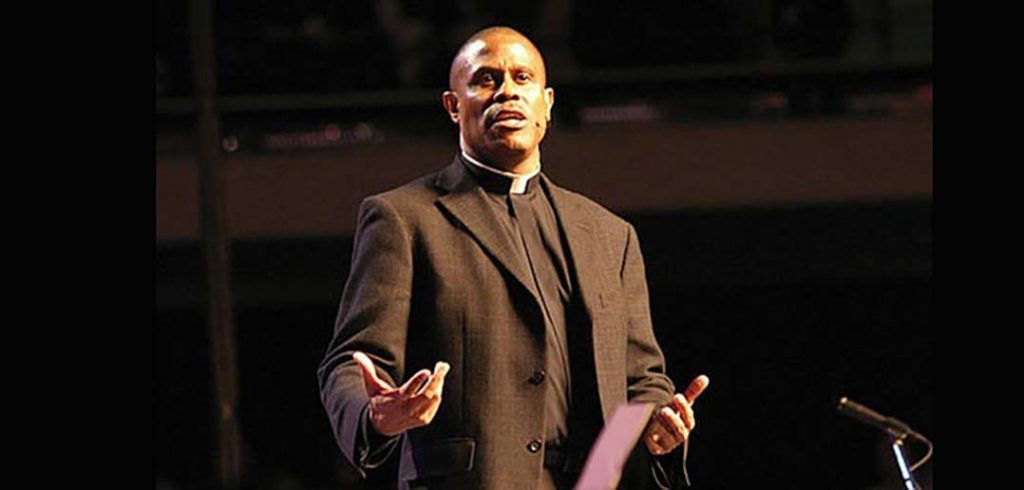Fordham theology professor Bryan Massingale, STD, one of the world’s leading Catholic social ethicists and scholars of African-American theological ethics, racial justice, and liberation theology, wasn’t just a resident of Milwaukee when he taught at Marquette University—he grew up there, too.
So when Sherman Park, a predominantly black neighborhood on the north side of the city, exploded in riots on Aug. 13 following the shooting death of a black man by police, Father Massingale, who joined the Fordham faculty this summer, said he was saddened but not surprised by the turn of events.
We caught up with Father Massingale as he was preparing to begin teaching this fall, to get his take on growing up in the “Selma of the North,” one of the most racially segregated U.S. cities.
Full transcript below
Bryan Massingale: The crisis that we’re seeing and hearing about has been unfolding in Milwaukee for decades. The negative or troubled relationships between the African American community and the police department in Milwaukee go back to my childhood. We were often told that if we wanted the police to really show up rapidly, we had to say that someone was in the street with a gun. Because otherwise, routine kind of police service was in many ways nonexistent.
Recently, as an African American professor, and a priest, I was walking in downtown Milwaukee at night and had two officers pull up without any warning, have me assume the position, frisked me, whatever. When I asked them what the reason was, they curtly just said, “Go mind your own business.” Only to find out they were responding to reports of a robbery in the area, but the suspect shared nothing in common with me other than they said that we had black skin. That kind of casual disrespect is something which is unfortunately as a black man living in Milwaukee, you come to expect as being normal.
I think that’s something that’s very hard for most white Americans to understand because their experience with the police is very, very different. All too often we talk about these issues. We polarize them in terms of being you’re either for the African American community or you’re supporting our police. The two are seen as being a contradiction to each other. We have to support police officers who are doing a very dangerous job. But we also have to realize there is a national systemic problem with policing.
I think that their core issues of racial justice are profound spiritual issues. Because racism, at its core, is what I would call a soul sickness. It’s a profound warping of the human spirit that allows us to be indifferent towards the plight of those who don’t look like us. While there need to be social solutions and political solutions to the issues of racial injustice, in my view, those will be ultimately ineffective if they’re not accompanied also by a deep spiritual conversion.

